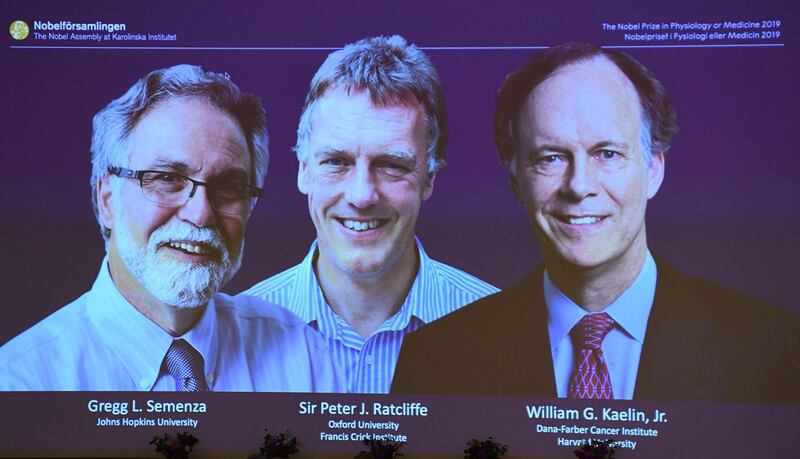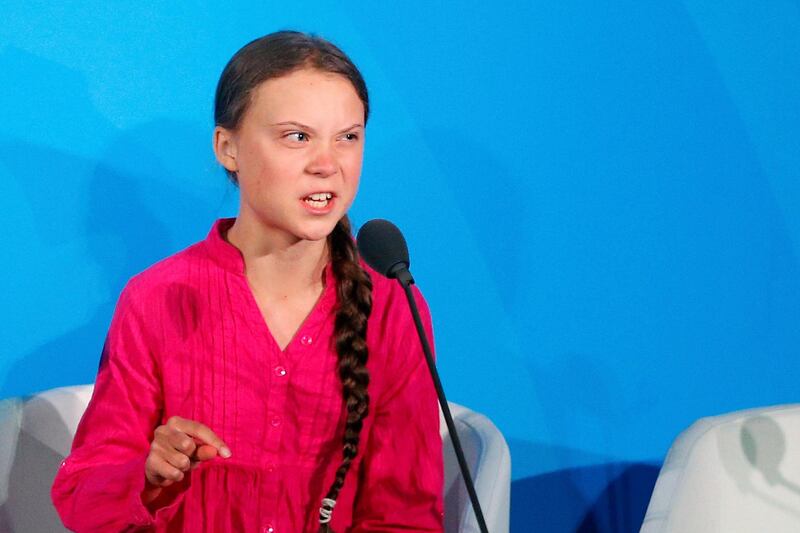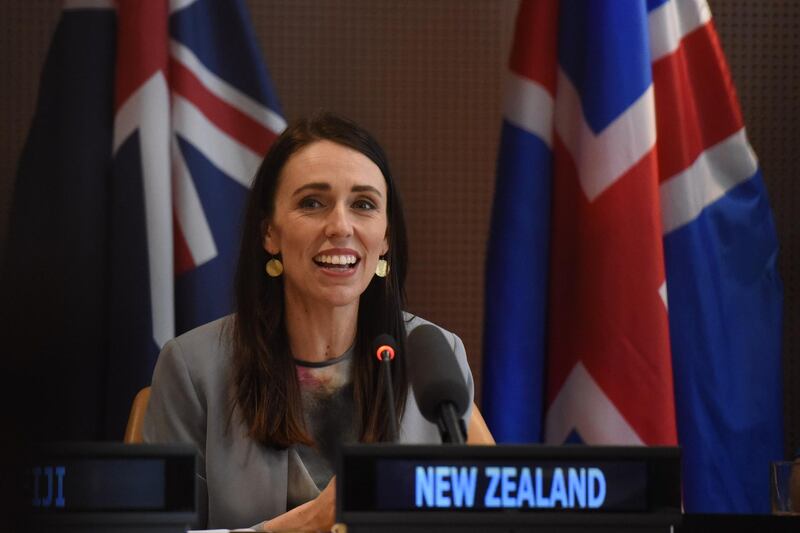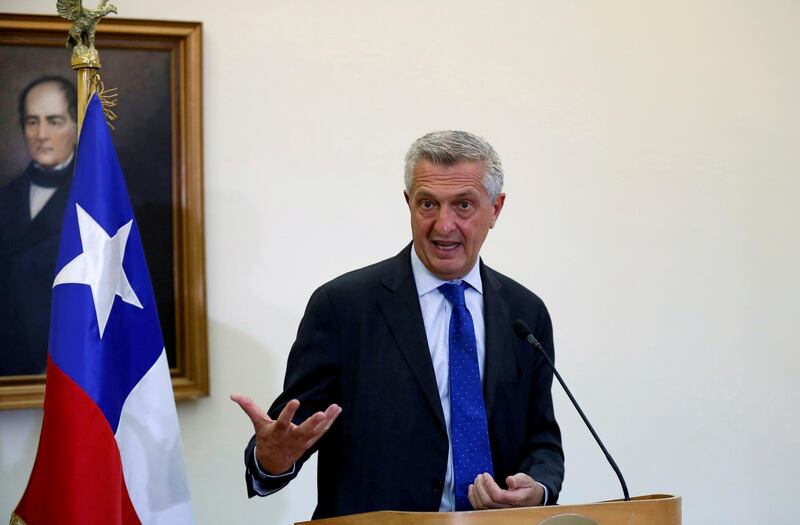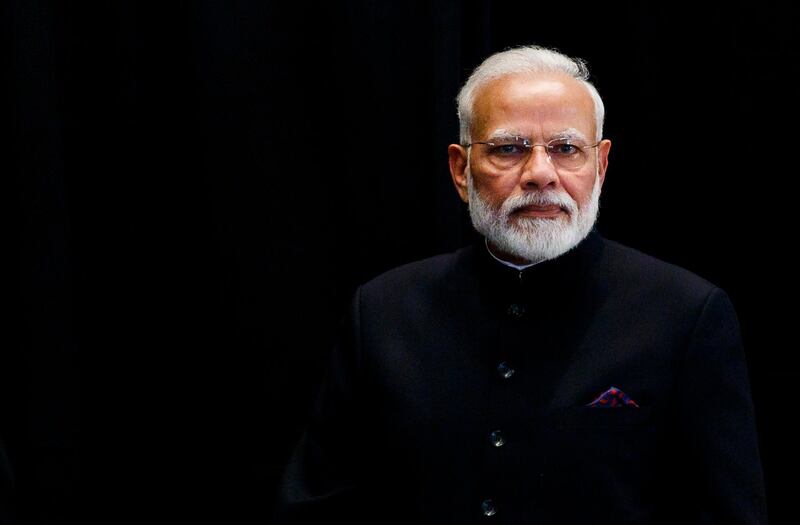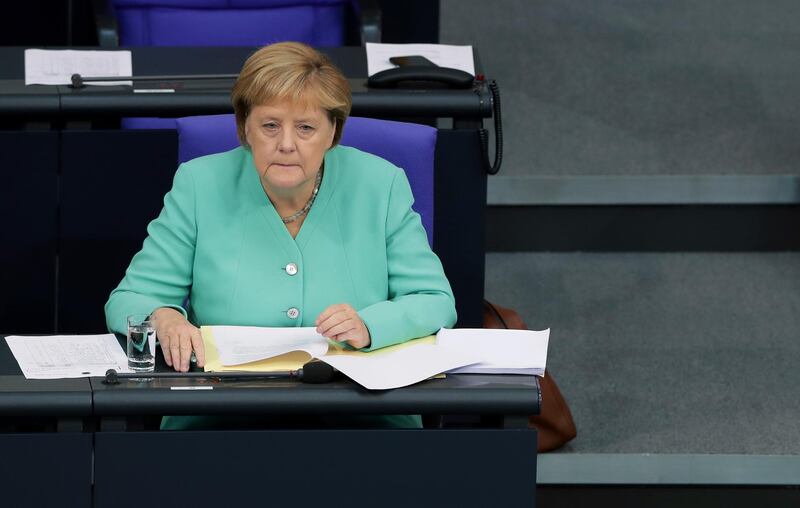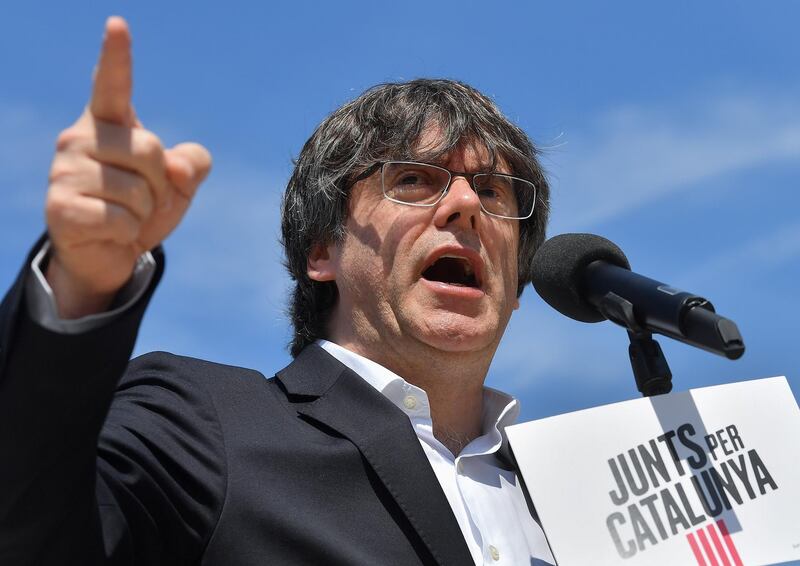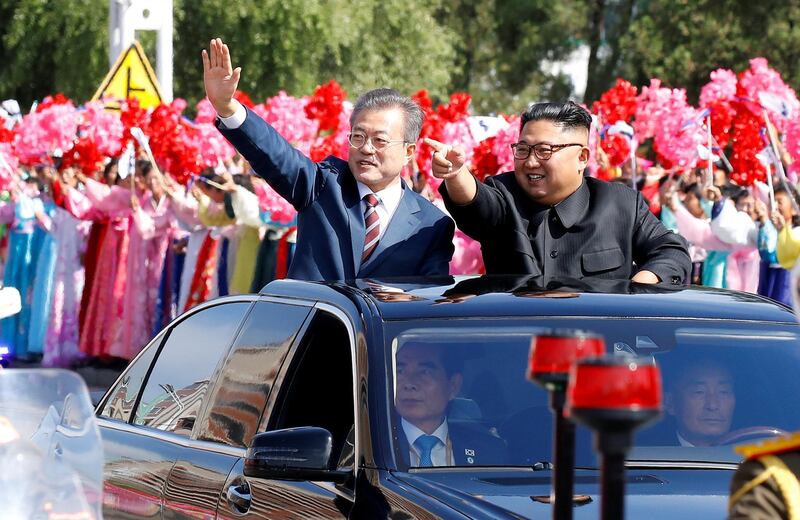US researchers William Kaelin and Gregg Semenza and Britain's Peter Ratcliffe won the Nobel Medicine Prize on Monday for discoveries on how cells sense and adapt to oxygen availability.
The Nobel jury said the trio have "established the basis for our understanding of how oxygen levels affect cellular metabolism and physiological function."
The jury said their discoveries have "paved the way for promising new strategies to fight anemia, cancer and many other diseases."
It is the 110th prize in the category that has been awarded since 1901.
The winners of this year's Nobel Prizes are to be announced over the course of this week. They include two literature laureates and the coveted Nobel Peace Prize.
The physics prize is handed out on Tuesday and the following day is the chemistry prize.
This year's double-header Literature Prizes will be awarded Thursday and the Peace Prize will be announced on Friday.
The economics prize — officially known as the Bank of Sweden Prize in Economic Sciences in Memory of Alfred Nobel — will be awarded on October 14.
The 2018 literature prize was suspended after a scandal rocked the Swedish Academy. The body plans to award it this year, along with announcing the 2019 laureate.
Reached at his home, Dr Kaelin said he was half-asleep Monday morning when the phone rang. It was Stockholm.
“I was aware as a scientist that if you get a phone call at 5 am with too many digits, it’s sometimes very good news, and my heart started racing. It was all a bit surreal,” the 61-year-old said.
Mr Kaelin said he isn’t sure yet how he’ll spend the prize money but “obviously I’ll try to put it to some good cause.”
Dr Ratcliffe, 65, said he was summoned out of a meeting this morning by his secretary, who had “a look of urgency.”
“He had a Swedish accent, so I figured it probably wasn’t one of my friends pulling my leg,” he said of the Nobel caller.
Trained as a kidney doctor, Dr Ratcliffe said his research began when he and colleagues simply wanted to figure out how cells sense oxygen.
“I thought it was a definable problem and just thought we’d find out how it worked,” he said. Dr Ratcliffe said it was about two years into the research program that first began in 1990 when they realised the discovery had much wider significance.
“We saw that it wasn’t just cells in the kidney that know how to sense oxygen, but all cells in the body,” he said. “They use this to do a huge range of other things, reprogram the cells, cause the growth of blood vessels, differentiation of cells. There are hundreds and thousands of processes the body uses to adapt to and regulate its oxygen levels.”
He said while some promising drugs have been developed, including for kidney patients who don’t get enough oxygen, it will be years before it’s clear whether such discoveries are going to change the lives of tens of thousands.
Dr Ratcliffe said he plans to have a celebratory party at the laboratory and later with his family. “A lot of people came to the office after the phone call and we had some champagne,” he said.
In Baltimore, Dr Semenza, 63, said it was when he and colleagues were studying a gene in a rare cell type in the kidney and they did an experiment that showed the factor they discovered — which was linked to oxygen — that suggested it had widespread physiological importance. It turns out that the gene turns on erythropoietin, or EPO, which controls red blood cell production, when cells don’t get enough oxygen.
“We found it very interesting that the body can respond to oxygen,” he told AP. That discovery has led to treatments for people with chronic kidney disease who become anemic when their kidneys stop making EPO. “Now, drugs can turn on EPO production by increasing these factors.”
____________
